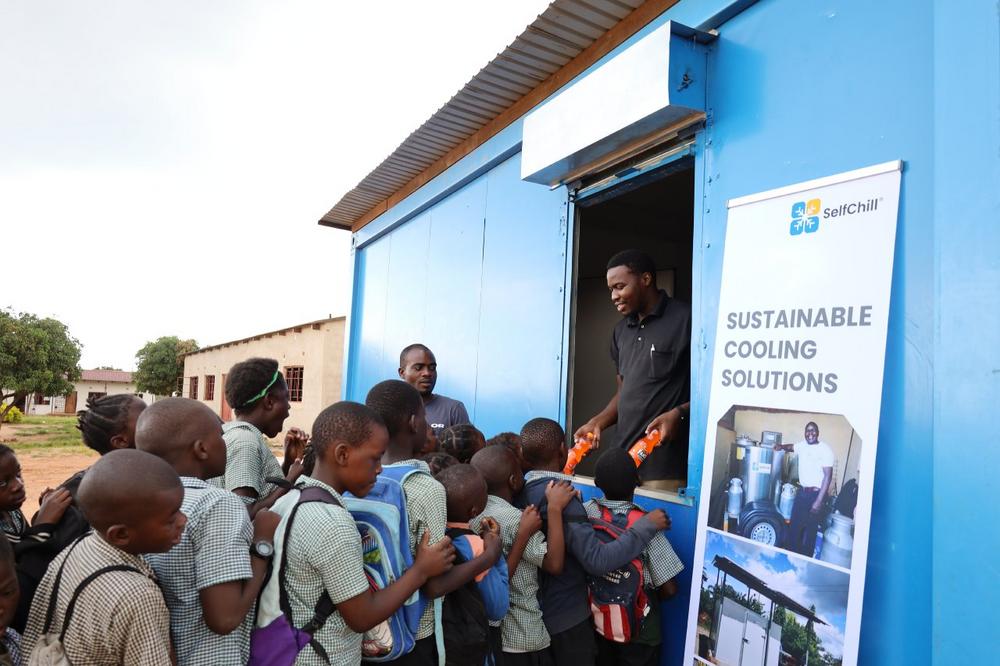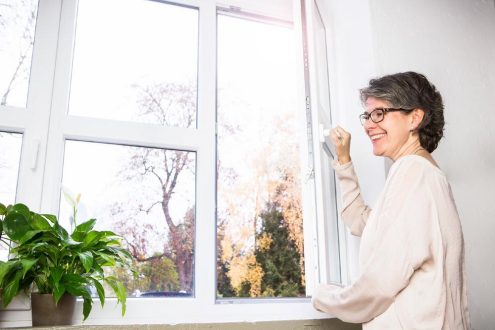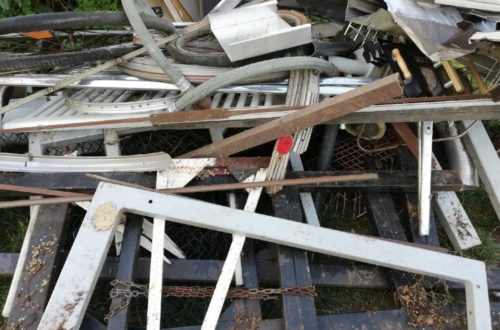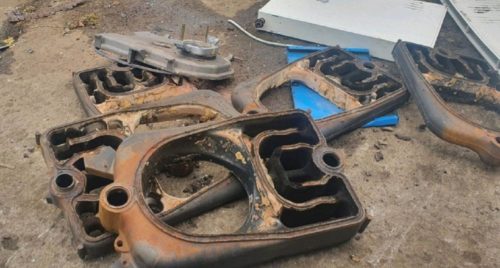
Solar cooling technology secures food supply in Zambia and Tanzania
Many regions of East Africa have optimal climatic conditions and fertile soil for local agriculture and livestock farming. Unfortunately, in rural areas, there is often a lack of refrigeration facilities to keep fruits, vegetables, and dairy products fresh for longer. Solar-powered cooling systems can provide a solution, but there is a lack of local expertise. Moreover, the distribution of foreign technologies is hindered by high transport costs, import duties, and bureaucracy.
The "SelfChill Tanzania and Zambia" project aimed precisely at this problem. German companies Phaesun and Solar Cooling Engineering developed the SelfChill technology for solar-powered modular cooling systems, which is adapted to the use of small farmers in the tropics and subtropics. In addition to the extremely efficient technology based on natural refrigerants and ice storage, the modular structure of the systems is unique. The core components from Germany are combined with locally available materials such as insulation material, piping, and film, allowing local companies to build cooling systems according to customer needs.
"Africa-made" cold rooms based on German technology
Together with a Zambian and a Tanzanian installation company, the SelfChill team from Germany established workshops in Lusaka/Zambia and Dar es Salaam/Tanzania. The technical teams of the local companies were trained in a series of courses in Germany as well as in the target countries. Core components were delivered to East Africa, and additional installation material was purchased locally. The first cooling systems are now in operation for demonstration purposes on farms and schools in Lusaka and Dar es Salaam.
For example, in a SelfChill cold room at the Mango Grove orphanage in Lusaka, food for the school cafeteria is stored. Local market vendors also use a plot in the cold room to store their vegetables overnight.
In Tanzania, a SelfChill cold room and a milk can cooling system were implemented at a local dairy near Dar es Salaam. This keeps the quality of the milk high, and hard cheese can be produced and stored.
Knowledge transfer as an important pillar
In addition to the trade partners, the team worked with the Fountain Gate training institute in Lusaka and conducted training and conferences. This allowed teachers at the school, who had previously focused solely on solar technology, to acquire and pass on new knowledge.
Sonja Mettenleiter, agricultural engineer and trainer at Solar Cooling Engineering, conducted training in Zambia and accompanied the installations. She reports: "Our main concern is that the local partners understand the technology and use it according to their needs. Their innovation capacity has created entirely new system configurations!"
She means, for example, a milk can cooling system in which a discarded freezer forms the basis and was "upcycled" into a new system with the SelfChill core components.
Overall, Ms. Mettenleiter looks back positively on the project: "We started in the middle of the Covid pandemic. Presence training and travel were hardly possible, and international trade was restricted, which delayed the delivery of our materials. Thanks to the teamwork of the different partners and a lot of improvisation, we can now claim that solar cooling is also on the rise in East Africa."
The project "SelfChill Tanzania and Zambia" was initiated by Phaesun and carried out in a project consortium of five international partners between 2021 and 2023. It was funded by the Nordic Development Fund of EEP Africa.
About EEP Africa: The "Energy and Environment Partnership Trust Fund" (EEP Africa) is a fund of several donors that provides early-stage financing for innovative projects, technologies, and business models in the field of environmentally friendly energy in southern and eastern Africa. EEP Africa is managed by the Nordic Development Fund (NDF), which is financed by Austria, Finland, and the NDF.
About Phaesun GmbH: Since its founding in 2001, Phaesun has specialized in the distribution, customer service, and installation of photovoltaic and wind power systems for off-grid power supply. As one of the world’s leading system integrators, Phaesun offers products from all renowned manufacturers in this industry. International project management, targeted customer training, and technical support complete the comprehensive service offering. The headquarters of Phaesun GmbH have been located in Memmingen, Germany, since its founding. The Phaesun Group now has subsidiaries and sales offices in Europe, Africa, and Latin America, thus contributing to a sustainable energy supply in the target markets of Europe, Africa, Latin America, and the Middle East.
As one of the world’s leading system integrators of off-grid supply systems, Phaesun offers products from all renowned manufacturers in this industry. International project management, goal-oriented customer training and technical support complete the comprehensive service offering. Phaesun GmbH, based in Memmingen, Germany, has specialized in sales, customer service and installation of off-grid photovoltaic and wind power systems since the company was founded in. With a branch office in France, Phaesun can rely on a worldwide partner and sales network.
Phaesun GmbH
Brühlweg 9
87700 Memmingen
Telefon: +49 (8331) 99042-0
Telefax: +49 (8331) 99042-12
http://www.phaesun.com
Projektmanagerin
Telefon: 0833199042151
E-Mail: geraldine.quelle@phaesun.com
![]()



